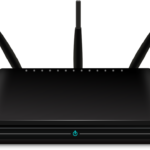How Do VPN’s Increase Your Security?
VPN is an acronym for Virtual Private Network. Normally, when you connect to the internet, you do so through your ISP or Internet Service Provider. You type in a URL, like www.australianvpn.com.au, into the address bar of your browser, and your ISP contacts the web server of the website with a request for the page.
Depending on the security controls deployed, this request may or may not be granted (this is why some content cannot be accessed by everyone – if you have tried to watch HBO’s Game of Thrones from its US site while being in Australia, you should be able to relate to this).
If the request is granted, the web server embeds what are known as ‘cookies’ on your computer, based on its IP address (this is assigned by the ISP). These also make a note of the time you attempted to view the content.
So every time you visit a website, cookies are installed on your computer. They not only record which pages you visit, but also what you did on these pages. A lot of websites make money from advertising. They work closely with ad servers, which take a look at the pages you visited recently and your activity on them, and serve up corresponding ads.
This is how you see a travel portal advertising banner that mentions the exact same route for which you checked fares only a few moments ago, on another web page that you subsequently visit. In internet terminology, it is called targeted advertising.
But this can also be annoying. Sometimes, you might have already made a purchase; or you may not be interested.
Is there any way to get rid of these ads?
This is where having a VPN (Virtual Private Network) can be advantageous. A VPN server comes in between the ISP and the web server. In fact, all your outgoing traffic from the ISP is routed through the VPN server.
The VPN server adds its own IP address before sending your browser’s request to the web server. Since there can be only one IP address associated with a request, the web server sees only the VPN server’s IP address. All cookies thus get embedded on the VPN server and not your computer. This way, you are spared of all the ads.
There are also hackers who seek to infect your system with malware, so that their malicious software can record keystrokes and send them your credit card information or banking account login/password. The reason why individual PCs are targeted is because they have a lower level of security than servers. Hackers find out which PCs to attack by looking at cookies embedded on your system by shopping/e-commerce sites or banks. With VPNs, their strategy is defeated, as VPN servers have a high level of security that cannot be cracked easily.








